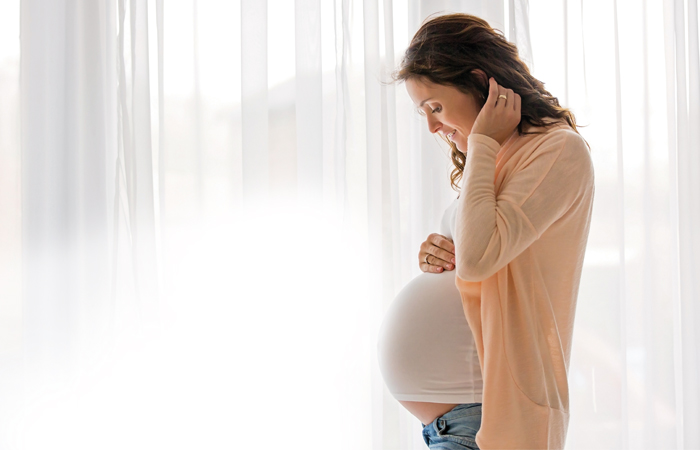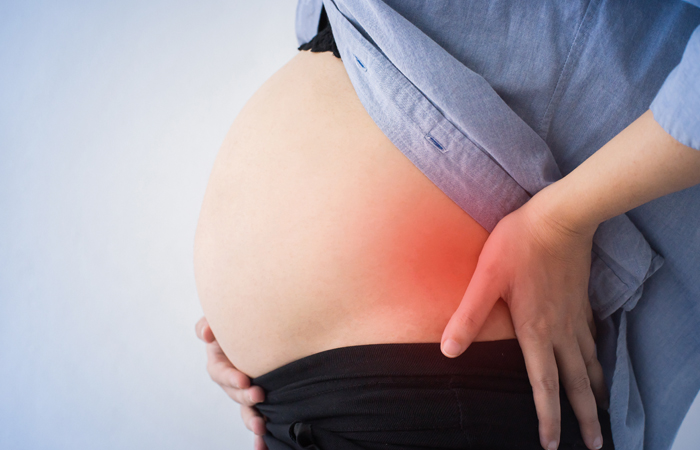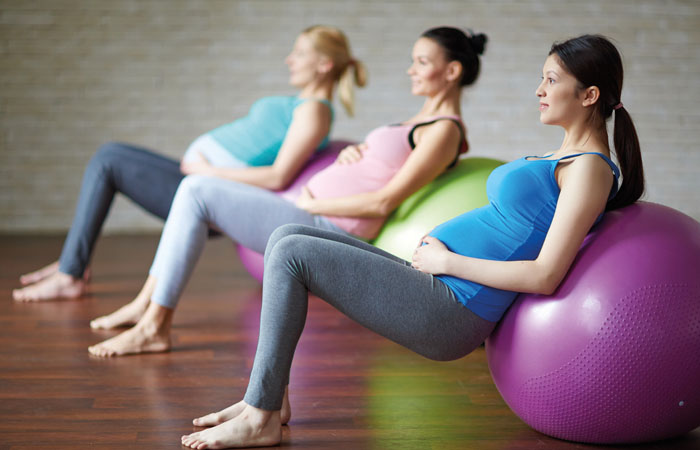Baby steps
In Conditions
Follow this topic
Bookmark
Record learning outcomes
A healthy woman is more likely to give birth to a healthy baby. So how can pharmacy teams advise mums-to-be on what to do to look after themselves, as well as their bump?
Pregnancy can be a stressful time for parents-to-be and many will spend nine months on very baby-focused activities like reading parenting books, preparing the nursery and choosing potential names. But focusing on themselves is equally important for women, especially when it comes to their health and protecting the future health of their baby. In particular, the first 1,000 days (from conception to age two) are a crucial period that will have an impact on the rest of a child’s life.

New research about neurological development and the impact on babies of maternal stress and anxiety in pregnancy, make prevention and early intervention even more important. Luckily, there’s plenty of advice pharmacy teams can give to support women – and their partners – to adopt positive health behaviours and deal with some of the most common pregnancy problems.
Morning sickness
Nausea and vomiting (morning sickness) is very common and is thought to be caused by changes in hormone levels during the first weeks of pregnancy.
“Symptoms of morning sickness can occur at any time of day or night,” says independent pharmacy leader Deborah Evans. “It usually clears up around week 16 and lifestyle changes can help, such as getting plenty of rest, avoiding foods or smells that make the woman feel sick, eating dry toast or a plain biscuit, eating or drinking foods containing ginger (such as raw ginger in hot water, sipped frequently) and acupressure on the wrist using a band designed to relieve sickness.” However, Deborah warns: “If sickness is severe there is a risk of dehydration so you should refer the woman to her GP.”
Tiredness and problems sleeping
Tiredness is very common, particularly in very early pregnancy when hormones levels change, and in late pregnancy when the growing baby can make sleeping uncomfortable.
Deborah says the key to feeling less tired is to take frequent rest breaks, eat healthily and take gentle exercise. “Yoga, pilates, meditation and relaxing music can also help with relaxation before sleep, and avoiding caffeine-containing drinks is generally a good idea in pregnancy,” she adds. “Towards the end of pregnancy the woman can use pillows in bed to support the back, and between the knees lying on one side to bring comfort. It is recommended that women sleep on their sides in later pregnancy as this has been shown to reduce the incidence of still-births.”
Guidelines on nutrition
Pregnant women don’t need to go on a special diet, but Government guidelines stress that it’s important to eat a variety of foods every day to get the right balance of nutrients for them and their baby. Advice includes:
- Eat at least five portions of fruit and vegetables every day as these provide vitamins and minerals, as well as fibre, which helps digestion and prevents constipation
- Starchy foods are an important source of energy, some vitamins and fibre. Choose whole grain or higher fibre options such as wholewheat pasta, brown rice or simply leaving the skins on potatoes
- Eat some protein-containing foods every day, such as beans and pulses, fish, eggs, lean meat (but avoid liver), skinless poultry and nuts
- Eat two portions of fish a week, one of which should be oily fish such as salmon, sardines or mackerel.
There are also certain foods that should be avoided in pregnancy:
- Avoid having more than two portions of oily fish a week, because it can contain pollutants
- Avoid raw or partially cooked eggs, as there is a risk of salmonella. However, eggs produced under the British Lion Code of Practice are safe for pregnant women to eat raw or partially cooked, as they come from flocks that have been vaccinated against salmonella
- Dairy foods are important because they contain calcium and other nutrients that mother and baby need, but avoid unpasteurised cheeses
- Avoid foods and drinks that are high in fat, sugar or both
- Avoid all types of pâté, including vegetable varieties, as they can contain listeria.
- Do not eat raw or undercooked (rare) meat because of the potential risk of toxoplasmosis
- Too much caffeine can also cause low birthweight or miscarriage. Aim to consume no more than 200mg a day. Some cold and flu remedies also contain caffeine, so customers should be advised about these as well.
- In addition to eating a healthy, varied diet in pregnancy, Government advice
to expectant mothers is to: - Take 400 micrograms (mcg) of folic acid each day from before conception until 12 weeks pregnant, as it can help prevent birth defects known as neural tube defects, including spina bifida
- Take 10mcg of vitamin D a day as this regulates the amount of calcium and phosphate in the body, which keep bones, teeth and muscles healthy
- Not take vitamin A supplements, or any supplements containing vitamin A (retinol), as too much could harm the baby.
Stretch marks
Stretch marks can appear anywhere on the body as a result of weight gain and stretching of a woman’s skin as her baby grows, with an estimated 75-90 per cent of women prone to developing them during pregnancy.
“Diet and exercise can improve the skin’s health during pregnancy, incorporating foods such as dark leafy vegetables, almonds, avocado, red meats, poultry and whole grains, and maximising circulation by being active”, says Deborah, who adds that massaging an oil on the most common areas for stretch marks twice daily from around 13 weeks can help.
Incontinence
Between 30 and 50 per cent of women experience incontinence during or after pregnancy, but it remains a sensitive subject.
One of the main causes of incontinence during and after pregnancy is a weakened pelvic floor. “The growing uterus puts increasing pressure on the bladder’s surrounding muscles, causing them to weaken,” explains Donna Wilson, TENA training and brand manager. “The ovaries also produce relaxin, a hormone which relaxes pelvic muscles to prepare the body for childbirth. When the pelvic floor muscles become too weak they are less effective at supporting the bladder, leading to urine leakage.”
To counteract the weakened pelvic floor after pregnancy, Donna suggests women practice kegel exercises up to four times a day. “Regularity of the exercises within the first four to eight weeks following a baby’s birth will see new mothers notice a positive difference,” she says.
Donna adds that in the meantime, “it is also important that women face the problem head on, and this is where the pharmacy team has a critical role in providing information to pregnant women around product benefits and use, to assess the level of absorbency they need and what product would best suit their situation”.
Guidelines on alcohol and smoking
Smoking in pregnancy is associated with poor foetal growth and low birthweight, problems with ears, nose and throat, respiratory conditions, diabetes and obesity in childhood. Encouraging women to stop smoking before having a baby may also help them stop smoking for good.
Although the use of cigarettes has declined significantly over the last decade, over 10 per cent of pregnant women still smoke. Over recent years nicotine replacement therapies, such as nicotine patches or e-cigarettes, have been prescribed to women who wish to quit smoking during their pregnancy.
However, new research published in the Journal of Physiology warns that any kind of nicotine exposure during pregnancy, whether from smoking cigarettes, or nicotine patches and e-cigarettes, increases the risk of sudden infant death syndrome (SIDS) – sometimes known as cot death – because exposure to nicotine by any route may be harmful to a baby’s cardiorespiratory function and increase the risk of SIDS.
Drinking alcohol during pregnancy can increase the risk of miscarriage and low birthweight, as well as the risk of developing foetal alcohol syndrome (FAS). The latest guidelines from the UK chief medical officers state that for women who are pregnant or planning a pregnancy the safest approach is to not drink alcohol at all in order to keep risks to the baby to a minimum.
Back pain
More than two-thirds of women are expected to suffer from muscular back pain at some time during pregnancy, according to a 2015 Cochrane Review.
Elvy Mardjono, senior product manager for topical pain relief brand Deep Freeze, says there are a number of reasons why this is the case, including the effects of relaxin, which helps soften and stretch the ligaments in preparation for labour, and the natural change in posture as the baby bump grows, changing the centre of gravity which may lead to back pain or strain.
“Pregnant women should always be advised to check new symptoms with their midwife,” says Elvy, “but the pharmacy team can help pregnant customers to manage muscular back pain by recommending products such as pain relief cold gel or patches, as well as lifestyle advice. While it is always important to check with a midwife or GP before starting any new exercise programme or carrying out strenuous exercise, the pharmacy team may recommend that mums-to-be continue regular exercise, such as walking or swimming, which can help strengthen muscles and keep them flexible. It is also important to pay attention to posture so the spine is not strained by slouching, and staff may recommend a pregnancy support belt, especially in the later stages.”

Heartburn and indigestion
The hormonal changes during pregnancy relax the sphincter at the top of the stomach, which together with the pressure of the baby’s weight, can cause indigestion and heartburn for many expectant mums. Symptoms are most common from 27 weeks and include a burning sensation or pain in the chest, feeling full, heavy or bloated, burping and feeling or being sick.
“Eating small quantities of food at a time and avoiding rich, spicy and high-fat foods can help as well as sitting upright and being propped up when in bed,” says Deborah. “Antacids and alginates can be taken during pregnancy and are taken when symptoms appear. If discomfort occurs with all food, then they can be taken before a meal and at night to prevent symptoms coming on. If the indigestion is very troublesome then you should refer the woman to her GP who may prescribe an H2 antagonist such as ranitidine or a proton-pump inhibitor like omeprazole.”
Swollen ankles
Water retention during pregnancy is normal and can lead to ankles, lower legs and fingers becoming swollen, particularly towards the end of the day and during hot weather. To help reduce swelling, pharmacy teams can advise women to avoid standing for long periods, wear comfortable shoes and socks that are not too tight and even consider maternity support tights.
“Women should try to rest with their feet up, drink plenty of water, take regular walks and try doing foot exercises to maintain a good circulation,” says Deborah. “Swelling that comes on gradually is not usually harmful, but sudden increases in swelling can be a sign of pre-eclampsia – a condition affecting some women, usually in their second half of pregnancy from 20 weeks.” If this is suspected, the woman needs to be referred immediately.
As is so often the case with customer interactions, it’s not just engaging with those who are already experiencing problems that is important. Every interaction pharmacy teams have is an opportunity to improve outcomes, not just for mothers-to-be, but for their future children as well.
Guidelines on exercise

The UK’s chief medical officers have specific advice about the types of activities that are safe to do during pregnancy:
Pregnant women who are already active should be encouraged to maintain their physical activity levels
Those who were not active before their pregnancy are advised to avoid intense exercise such as running, jogging, racquet sports and strenuous strength training
Pregnant women should avoid activities with an increased risk of falling, trauma or high impact injuries
They are also discouraged from exercise that requires lying flat on their back after the first trimester.
Between 30 and 50 per cent of women experience incontinence during or after pregnancy
